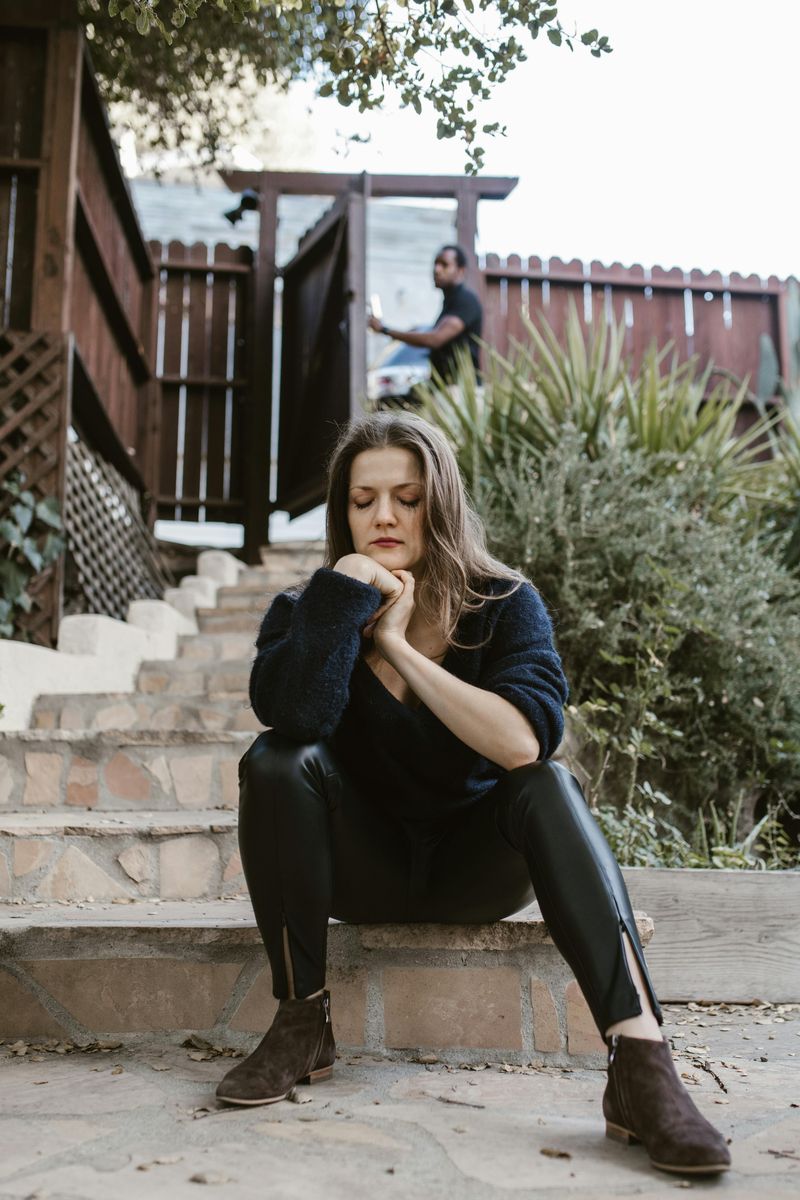Why Breaking Away from Destructive Relationships Feels Impossible

Ending a toxic relationship often seems harder than staying in one. When someone gets caught in a destructive relationship pattern, breaking free can feel like an impossible mountain to climb. The invisible chains that bind us to harmful connections have real psychological and practical roots that are difficult to overcome. Understanding these barriers is the first step toward finding freedom.
1. Emotional Attachment

The heart doesn’t easily follow logic. When we’ve intertwined our lives with someone else’s, our brains create powerful chemical bonds that mimic addiction patterns.
These emotional ties can remain strong even when our rational mind recognizes danger or harm. The thought of cutting these connections triggers genuine grief responses and withdrawal symptoms similar to drug dependency.
Many people describe leaving a toxic relationship as physically painful, like losing a vital part of themselves. This attachment isn’t weakness—it’s human neurobiology working against our best interests, making separation feel like surviving an amputation without anesthesia.
2. Hope for Change

Remember those magical early days when everything seemed perfect? That golden beginning becomes a powerful mirage that keeps many trapped in harmful patterns.
The occasional glimpses of improvement create a gambling-like reward system in our brains. Like a slot machine that pays just often enough to keep you playing, those rare good moments convince us that the next time will be different.
We invest in potential rather than reality. “If only they could see how they hurt me,” becomes a mantra that justifies staying through countless disappointments. This hope isn’t foolish—it’s a testament to human optimism, but also a prison when change never truly arrives.
3. Low Self-Esteem

Constant criticism works like water on stone, gradually eroding your sense of worth until you believe the negative messages. When someone repeatedly tells you that you’re worthless, unlovable, or lucky they tolerate you, those poisonous ideas seep into your self-image.
Eventually, the harmful relationship starts to feel like exactly what you deserve. The inner voice whispers, “Who else would want someone like me?” This distorted self-perception becomes a self-fulfilling prophecy.
The cruel irony? The very relationship destroying your self-worth becomes your evidence that you don’t deserve better treatment. Breaking this cycle requires rebuilding a foundation of self-respect that destructive relationships systematically dismantle.
4. Fear of Loneliness

Humans are wired for connection. The terrifying emptiness of solitude can make even harmful companionship seem preferable to no companionship at all.
Many stay because they’ve been systematically isolated from friends and family who might provide alternative support. The prospect of starting over—building new connections from scratch while healing—feels overwhelming. “What if I’m alone forever?” becomes a paralyzing question.
Holidays, weekends, and nighttime often become particularly dreaded. Even toxic company fills the silence that might otherwise force confrontation with difficult emotions. This fear isn’t irrational—loneliness has real health impacts comparable to smoking or obesity, making it a legitimate survival concern.
5. Financial Dependence

Money creates golden handcuffs that bind tighter than emotional ones for many trapped in harmful relationships. Leaving might mean homelessness, hunger, or inability to provide for children when financial resources have been controlled or limited by a partner.
Financial abuse often accompanies other forms of control. Access to bank accounts, credit, education, or employment opportunities may have been systematically restricted, creating genuine survival concerns. The economic aftermath of separation—potentially including legal fees, housing costs, and rebuilding financial stability—creates a mountain that seems impossible to climb.
For many, especially those with children or limited work history, the question becomes brutally practical: “How will I survive tomorrow if I leave today?”
6. Social Pressure and Stigma

“Marriage is forever.” “You made your bed, now lie in it.” “What will people think?” These cultural messages create powerful external cages around those considering escape from harmful relationships.
Religious communities sometimes inadvertently reinforce staying in damaging situations through teachings about commitment and forgiveness without equal emphasis on personal safety. Family expectations can create unbearable pressure, especially in cultures where divorce or separation brings shame to the entire family unit.
The fear of judgment becomes its own prison. Many worry about being blamed, disbelieved, or ostracized if they speak their truth. This social dimension of relationship trauma often goes unrecognized but creates real barriers to freedom that extend far beyond the relationship itself.
7. Manipulation and Gaslighting

“You’re overreacting.” “That never happened.” “You’re the crazy one.” Gaslighting creates a funhouse mirror effect where reality itself becomes questionable, making escape nearly impossible.
When someone systematically distorts your perception, you lose trust in your own judgment. The confusion becomes paralyzing. Many victims describe feeling like they’re losing their minds when their experiences are constantly denied or rewritten by someone they trust.
This psychological manipulation creates a perfect trap: you can’t leave a situation you can’t even clearly identify as problematic. The doubt becomes so deeply ingrained that even with external validation, many struggle to trust their perceptions enough to make life-changing decisions based on them.
8. Cycles of Abuse and Affection

The relationship rollercoaster creates a biochemical addiction more powerful than many drugs. The tension-explosion-honeymoon cycle described by domestic violence experts creates an unpredictable reward system that hooks the brain’s pleasure centers.
After experiencing harm comes the flood of relief, affection, and promises that trigger dopamine and oxytocin release. This biochemical cocktail creates powerful reinforcement that keeps people hoping and trying despite clear danger signals.
The contrast between bad and good moments makes the good times feel euphoric by comparison. Many describe feeling most loved during reconciliation phases after conflict, creating a perverse incentive system where harmony can only be achieved through preceding chaos. Breaking free means weathering withdrawal from this emotional addiction.
9. Shared History and Memories

First dates. Inside jokes. Family traditions. The weight of shared experiences creates invisible bonds that feel impossible to break without losing part of yourself.
Years invested make the sunk cost fallacy especially powerful in relationships. “We’ve been through so much together” becomes both comfort and trap. The prospect of starting fresh means abandoning not just a person but a timeline—holidays, anniversaries, and milestones that form the structure of a life story.
Photos, mementos, and mutual friends become painful reminders that leaving means rewriting your personal history. For many, this represents an identity crisis: “Who am I without this relationship that has defined so much of my life?” This existential question can paralyze even the most determined person contemplating change.
10. Guilt and Responsibility

“I promised to stay forever.” “What if they can’t manage without me?” The weight of perceived responsibility can be crushing, especially for natural caregivers and empaths.
Many harmful partners effectively weaponize this compassion through threats of self-harm or statements like “I can’t live without you.” This emotional blackmail creates an impossible burden where leaving feels like directly causing another’s suffering. When children, pets, or vulnerable family members are involved, this sense of duty becomes even more binding.
The misplaced guilt becomes a heavy anchor. Many stay because they’ve been conditioned to believe they’re responsible for their partner’s emotions, behaviors, and wellbeing—a burden no human was meant to carry for another fully-functioning adult.
11. Lack of Support Network

For many, the absence of a reliable support network can feel like being adrift in a vast ocean without a lifeboat. Friends and family can offer crucial encouragement and perspective, but what happens when they are unavailable or emotionally distant? This isolation can make even the strongest wills falter, as there’s no one to lean on or validate feelings.
The fear of judgment can prevent reaching out, as opening up about a destructive relationship might lead to blame or misunderstandings. Without a support network, the journey to independence feels daunting, with every step forward met by a wave of doubt.

Comments
Loading…